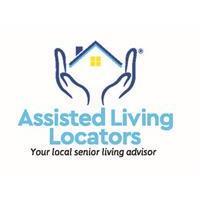National Safety Month, observed in June, provides a valuable opportunity to focus on the safety and well-being of our senior loved ones. It is time to reflect on the safety considerations and potential hazards that can affect seniors and to take proactive measures to create a secure environment for them by considering easy-to-follow safety tips for seniors.
By learning about safety methods and promoting awareness, we can enhance the safety of our senior family members and contribute to their overall quality of life. In this article, we will explore essential safety tips specifically tailored for seniors, including fall prevention, medication management, and emergency preparedness. Let us discuss these important areas to ensure the safety and well-being of our senior loved ones during National Safety Month and beyond.
Fall Prevention for Older Adults
Falls can result in severe injuries for seniors, impacting their mobility, independence, and overall quality of life. Taking proactive measures to prevent falls is essential for maintaining their safety and well-being. By implementing the following tips, you can create a secure environment and significantly reduce the risk of falls:
- Remove Tripping Hazards: Conduct a thorough assessment of the living environment and remove any tripping hazards such as loose rugs, clutter, and electrical cords. Ensure that floors are kept clear and pathways are well-lit.
- Install Safety Features: Install grab bars in the bathroom near toilets, tubs, and showers to provide support and stability. Consider adding handrails on both sides of staircases to assist with balance and prevent falls.
- Adequate Lighting: Ensure that all areas of the home, including hallways, entrances, and staircases, are well-lit. Use nightlights in bedrooms and bathrooms to aid seniors during nighttime navigation. According to Dr. Robert Bunning, MD, the associate medical director of inpatient services at MedStar National Rehabilitation Hospital in Washington, DC, it is recommended to incorporate night lights in bedrooms and bathrooms to provide better guidance at night.
- Non-Slip Flooring: Consider using non-slip mats or rugs in areas prone to moisture, such as bathrooms and kitchens. Ensure that seniors wear appropriate footwear with non-slip soles.
Assisted Living Locators of Northeast Orlando
-
Beau Herman Owner/Certified Senior Advisor®
- June 16, 2023
- (407) 498-2536
- Send Email



